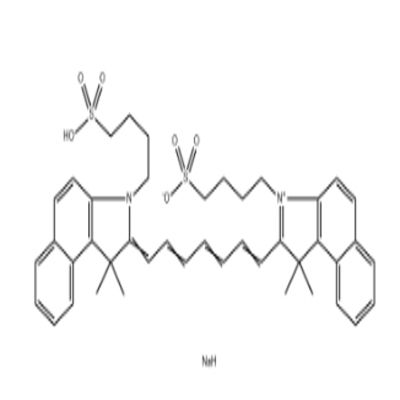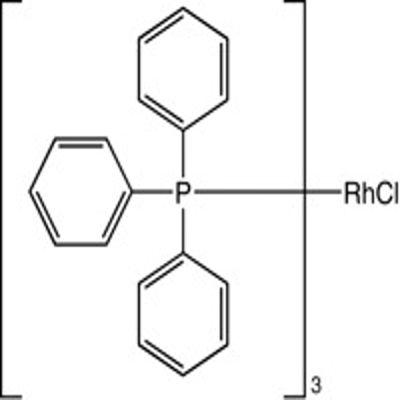-
Categories
-
Pharmaceutical Intermediates
-
Active Pharmaceutical Ingredients
-
Food Additives
- Industrial Coatings
- Agrochemicals
- Dyes and Pigments
- Surfactant
- Flavors and Fragrances
- Chemical Reagents
- Catalyst and Auxiliary
- Natural Products
- Inorganic Chemistry
-
Organic Chemistry
-
Biochemical Engineering
- Analytical Chemistry
- Cosmetic Ingredient
-
Pharmaceutical Intermediates
Promotion
ECHEMI Mall
Wholesale
Weekly Price
Exhibition
News
-
Trade Service
Guide: Epidiolex (CBD) has been approved for the treatment of seizures associated with nodule sclerosis (TSC).
, the U.S. Food and Drug Administration (FDA) has approved GW Pharma's cannabinoid drug Epidiolex (cannabidiol, cannabidiol, cannabidiol, CBD) oral liquid preparation searlyes for the treatment of seizures associated with nodule sclerosis (TSC) in patients 1 year and older.
previously, Epidiolex has been approved for use in the United States and the European Union for two rare and severe epilepsy: Lennox-Gastaut syndrome (LGS) and Dravet syndrome (DS).
in the United States and the European Union, Epidyolex/Epidiolex has been granted the right to treat DS, LGS, TSC-related seizures.
this is the only drug approved by the FDA as a cannabis plant source.
this is also the second FDA-approved drug to treat TSC-related epilepsy.
another approved drug, Novartis Afinitor Disperz (Ivemos), was approved by the U.S. FDA in April 2018 to treat partial epilepsy associated with nodule sclerosis (TSC) 2 years and older.
Epidiolex: Fda approved the only cannabis plant source drug Epidiolex is a high-purity CBD extract liquid formulation, CBD is the chemical component of cannabis plants, however, CBD does not cause tetrahydrocannabinol (THC) to bring poisoning or euphoria ("excited").
cannabis's main psychoactive ingredient is tetrahydrocannabinol (THC), not CBD.
CBD has a variety of pharmacological effects on the nervous system, and studies have shown that CBD has significant anti-epileptic and anticonvulsive activity, and has fewer side effects than existing anti-epileptic drugs. Douglas Throckmorton, m.
, deputy director of the FDA's Center for Drug Evaluation and Research, said the FDA still believes that the drug approval process is the best way to make new drugs, including any drug extracted from marijuana that can be made available to patients who need medication, such as epilepsy, which treats these rare symptoms.
this model ensures safety, effectiveness and quality consistency for new therapies.
FDA is committed to supporting rigorous scientific research into the potential medical uses of cannabis derivatives and wants to work with product developers who provide patients with safe, effective, and high-quality products.
clinical trials have shown that Epidiolex significantly reduces the rate of seizures in TSC patients TSC, a rare genetic disorder that causes non-cancerous (benign) tumors to grow in the brain and other parts of the body, such as the eyes, heart, kidneys, lungs, lungs and skin.
TSC usually affects the central nervous system and can behave differently depending on the affected site.
typical manifestations of facial sebum adenoma, seizures and adecreasist of intelligence, more than childhood incidence. the incidence of
is about 1/6000 live babies, a ratio of 2:1 between men and women, and about 1 million cases worldwide of TSC.
in a randomized, double-blind, placebo-controlled Phase III clinical trial, epidiolex was shown to treat TSC-related seizures.
the study included 224 patients diagnosed with refractory TSC, of whom 148 received Epidiolex treatment.
the study compared the percentage change in the frequency of Epidiolex and placebo seizures relative to the baseline.
results showed that patients treated with Epidiolex had significantly fewer seizures during treatment than those receiving a placebo.
this effect can be observed within 8 weeks and consistent throughout the 16-week treatment period.
in clinical trials, the most common side effects in TSC patients treated with Epidiolex were diarrhea, abnormal liver function, decreased appetite, drowsiness, fever and vomiting. Other side effects
LGS, DS, or TSC patients include liver damage, weight loss, anemia, and elevated creatinine.
Epidiolex, like other anti-epileptic drugs, may increase the risk of suicide or self-harm.
patients, caregivers and patient sorcings should be advised to monitor any abnormal changes in their mood or behavior.
Epidiolex may also cause liver damage in some patients, most of which are minor, but there is also a rare risk that severe liver damage may occur, which can lead to nausea, vomiting, abdominal pain, fatigue, anorexia, jaundice and/or urine color change.
targeting the epilepsy niche market, Epidiolex will continue to develop new indications GW Pharma targets a range of severely deficient minority syndromes, with Epidiolex positioned as the preferred product for the treatment of rare childhood epilepsy, a drug previously approved for Lennox-Gastaut syndrome and Dr. The treatment of avet syndrome; this time the approval of the new adaptation to tSC-related seizures), and the company will continue to develop a new indication of Epidiolex: Rett syndrome, a Phase III clinical trial of Epidiolex for RTT patients, which will be launched in 2019.
GW Pharma's 2019 annual report, revenue was $311.3 million in 2019, up $295.9 million, or 1921 percent, from $15.4 million in 2018. Sales of
products increased, mainly due to the November 2018 U.S. launch of Epidiolex, which had full-year 2019 sales of $296.4 million.
April 6 this year, Epidiolex was removed from Schedule V of the Substances Under Control Act (CSA), meaning epidiolex is no longer a controlled substance in the United States.
As GWPharma develops further research and development, FDA approval of Epidiolex's new indications will undoubtedly expand its market, and its use will increase significantly due to a lack of clear competitors.
, Epidiolex is expected to generate strong sales even if it is a niche.
.







